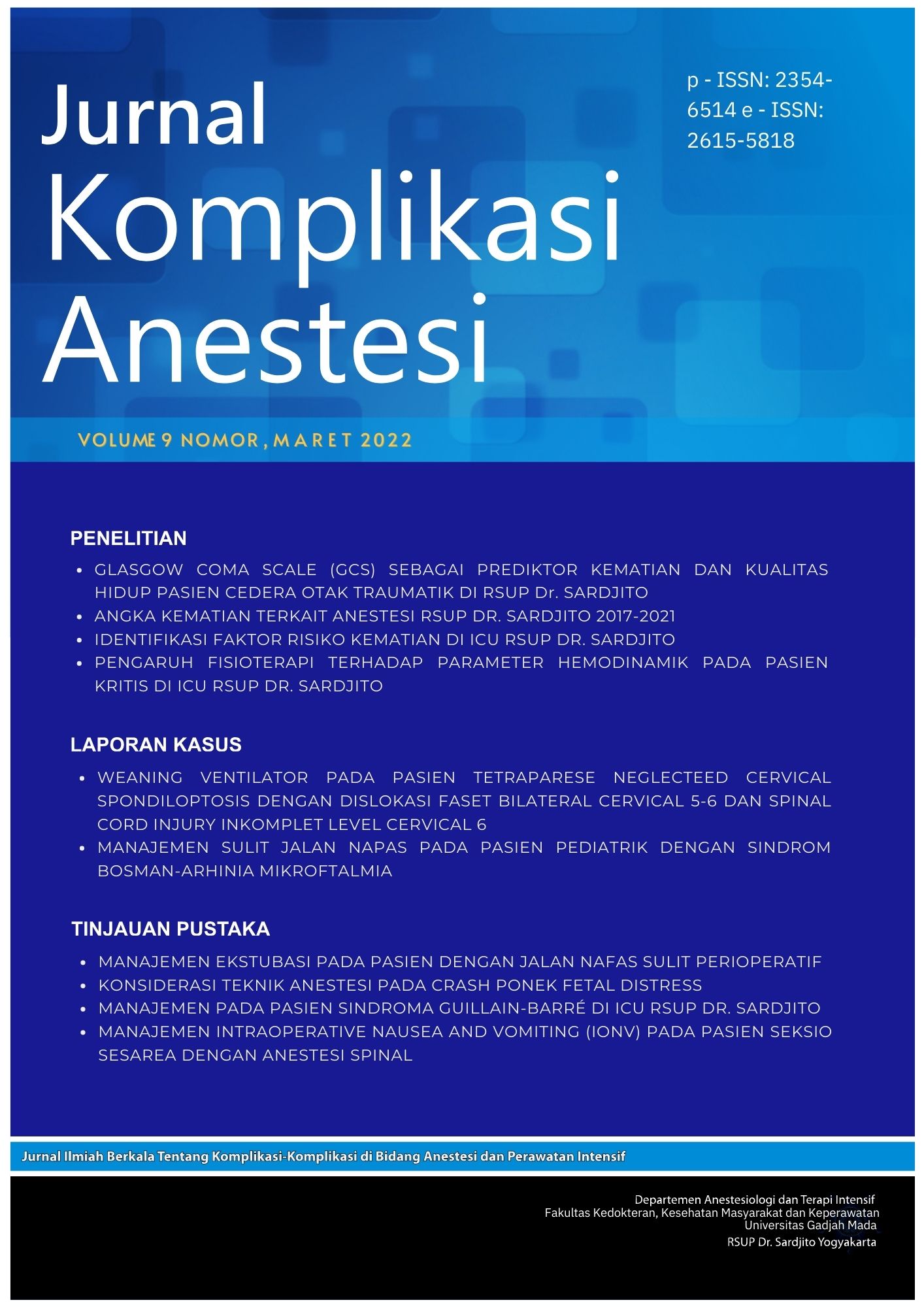Manajemen pada Pasien Sindroma Guillain-Barré Di ICU RSUP Dr. Sardjito
Abstract
Guillain-Barré syndrome (GBS) is an autoimmune disorder that affects the peripheral nervous system. Most patients with GBS are clinically characterized by tetraplegia with or without sensory disturbances. In GBS this is due to a hyperreactive immune response including release of antiganglioside antibodies, formation of antibody-dependent immune complexes, and increased macrophages leading to axonal demyelination and degeneration. Severe cases of GBS may present with progressive clinical signs involving respiratory muscle and requiring mechanical ventilation and treatment in an intensive care unit (ICU). We reported a 26-year-old woman with type 2 respiratory failure with suspicion of GBS who was being treated in the ICU of RSUP Dr. Sardjito and undergone plasma exchange as immunomodulator therapy. The patient was treated for 9 days in the ICU of RSUP Dr. Sardjito with the outcome of the patient discharged from ICU to the ward.
Copyright (c) 2022 Akhmad Yun Jufan, Sudadi, I Gusti Ngurah Putu Mandela Sunantara

This work is licensed under a Creative Commons Attribution-NonCommercial-ShareAlike 4.0 International License.
The Contributor and the company/institution agree that all copies of the Final Published
Version or any part thereof distributed or posted by them in print or electronic format as permitted herein will include the notice of copyright as stipulated in the Journal and a full citation to the Journal.

















